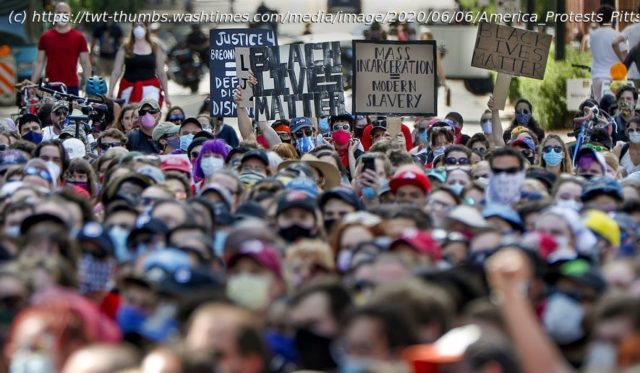For its most radical devotees, Black Lives Matter is a revolution, and no revolution would be complete without a cultural purge. The near-universal outrage…
For its most radical devotees, Black Lives Matter is a revolution, and no revolution would be complete without a cultural purge.
The near-universal outrage over George Floyd’s death in Minneapolis police custody is being leveraged on the left to steamroll its critics in academia, journalism and public life in the name of Black Lives Matter by branding them as racist.
“It’s a really terrifying reign of terror,” said Cornell Law School professor William A. Jacobson on Fox News’ “Life, Liberty & Levin.” “And it is so much worse now than it ever was. We always had political correctness and leftism on campuses. But with this new movement, they are totalitarian in nature.”
He should know. The tenured professor has been targeted in recent weeks by alumni calling for his firing and a faculty letter denouncing “commentators… leading a smear campaign against Black Lives Matter,” apparently referring to Mr. Jacobson’s comments on his conservative Legal Insurrection website.
In a statement, Cornell Law School Dean Eduardo M. Penalver said he found Mr. Jacobson’s comments “offensive and poorly reasoned,” but the university’s commitment to academic freedom “prevents us from censoring the extramural writings of faculty members.”
What did Mr. Jacobson say? In a June 4 post, he reiterated that the “hands up, don’t shoot” narrative was false — in other words, that Michael Brown never said that before being shot and killed in 2014 by an officer in Ferguson, Missouri. In a June 3 post, he said the Black Lives Matter movement was led by “anti-American, anti-capitalist activists.”
Of course, that description wouldn’t apply to most of those who turned out by the thousands to march for Floyd under the Black Lives Matter banner, and therein lies the problem. Seven years in, Black Lives Matter has never been more powerful, yet it remains more of a rallying cry and a brand rather than a specific entity or policy platform.
A Pew Research poll released June 12 found that 67% of adults surveyed strongly or somewhat supported Black Lives Matter, making it more popular than the Democrat or Republican parties.
“Seven years ago, people thought that Black Lives Matter was a radical idea,” Alicia Garza, one of its three co-founders, said on NBC’s “Meet the Press.” “And yet Black Lives Matter is now a household name, and it’s something being discussed across kitchen tables all over the world.”
That said, it’s still not entirely clear who speaks for Black Lives Matter or what it stands for.
Scott Walter, president of the conservative Capital Research Center, which tracks public policy groups on its InfluenceWatch website, said pinning down the highly decentralized BLM network has been like “trying to untangle a bowl of spaghetti.
Домой
United States
USA — mix 'Reign of terror': Black Lives Matter leverages George Floyd death in cultural...






